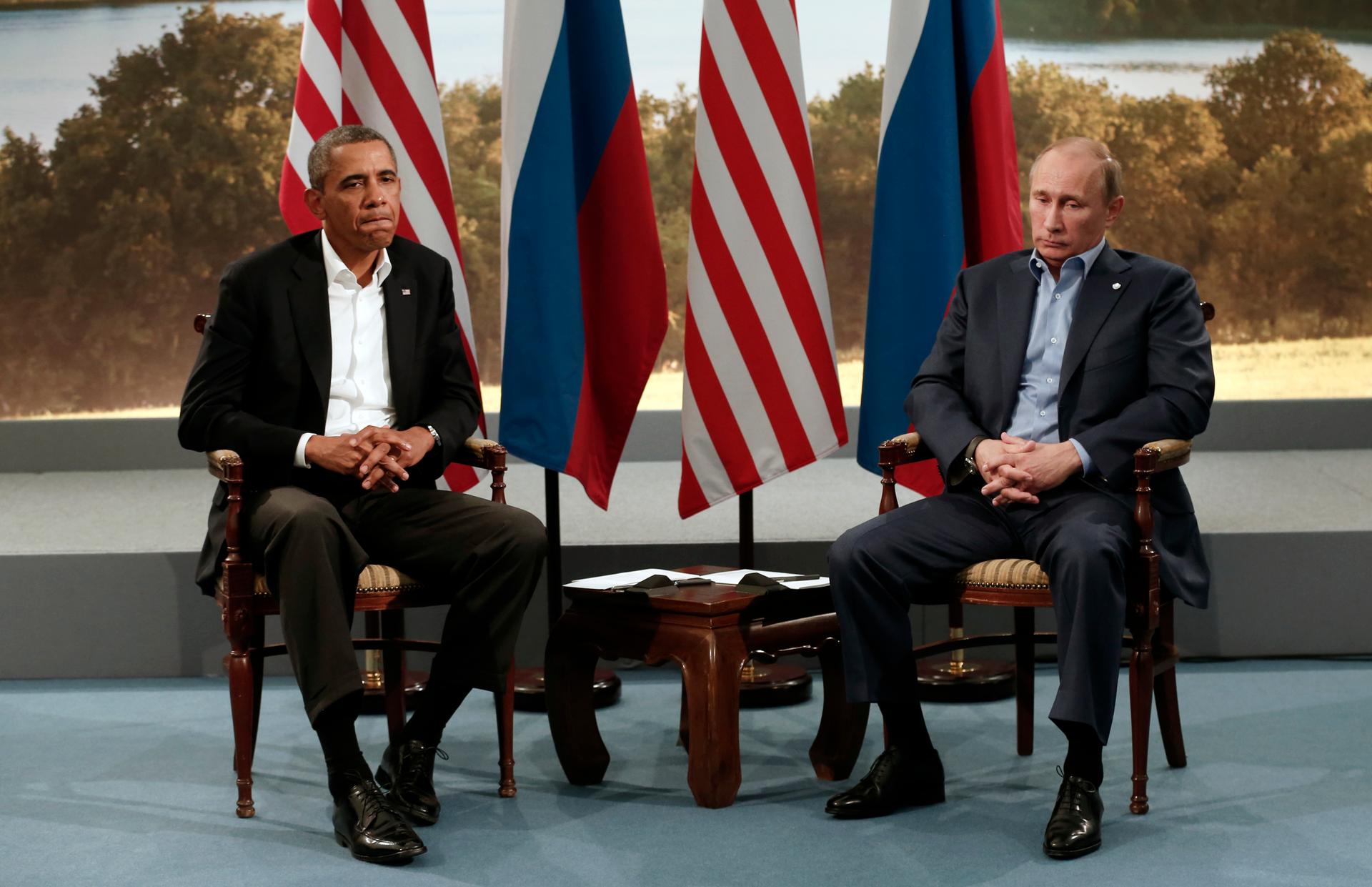Russia is using the situation in Iran and Ukraine to continue to antagonize the West
US President Barack Obama, left, meets with Russian President Vladimir Putin during the G8 Summit at Lough Erne in Enniskillen, Northern Ireland, on June 17, 2013.
From Ukraine to Iran, Russian President Vladimir Putin isn’t afraid of antagonizing the West — even if it does come with some economic pain.
Russia has been facing tough economic sanctions from the US and the EU because of its interference in Crimea and in parts of eastern Ukraine. Yet, despite the harsh financial pressure being levied by the West, NATO reported earlier this week that tanks and other military vehicles crossed the border from Russia into eastern Ukraine.
The nation of more than 145 million continues to feel the pain of sanctions, and it's looks like Russia's economy has gotten itself deeper into trouble: As previously reported, Russia's currency — the ruble — has fallen to an all-time low.
Despite the pinch of sanctions, Russia is also pressing ahead with its own vision for Iran.
On Tuesday, Russia agreed to build two nuclear reactors in Iran, with the intention of possibly building six more. The deal comes less than two weeks before the November 24 deadline for Tehran to sign an agreement on its nuclear program with six world powers that would lift economic sanctions.
Edward Lucas, the senior editor for energy at The Economist and author of "The New Cold War: Putin's Russia and the Threat to the West," says Russia’s actions in Iran and Ukraine are very intentional.
“Putin has a difficulty in Ukraine — he’s lost the sympathy of a large number of Ukrainians,” Lucas says. “But he also has a very big plus: He’s humiliated the West.”
By continually testing the global community with his actions in Ukraine, Lucas says Putin has shown to the world that the West is not willing to help Ukraine defend itself. Though the United States and the European Union have tried to inflict economic pain on Russia in the form of sanctions, Lucas argues that, for Putin, these measure don’t go far enough.
“Although [sanctions] bring some economic pain in the short-term, he’s prepared to ride that out,” Lucas says. “He’s got hundreds of billions of dollars in bank reserves, and he’s willing to accept economic pain in a way that we’re not. Over the next few months, he feels he’s got the wind in his sails with regard to Ukraine.”
President Putin is also brushing aside concerns over Iran.
“Russia would argue that it’s in everybody's interest for Iran to have a civilian nuclear program,” says Lucas. “But I think very few people in the West will accept that. … I think the American side has long since given up hope that Russia will be a constructive partner in all of this. They expect Russia to be a spoiler and a nuisance.”
While Russia can deal with the economic pain of sanctions, Lucas says the West is trusting the Iranian economy cannot.
“The hope on the American side is that the sanctions on Iran are hurting them so much that the Iranians genuinely want to do a deal,” he says. “Other people would argue that that whole hope is delusional and that the Iranians are inherently duplicitous in the way they go about this — they may be willing to sucker the Americans into a deal, but they won’t stick to it and it won’t deter them from their nuclear ambitions.”
Though critics and skeptics abound when it comes to the Iranian nuclear deal, Lucas says Russia’s motivation will continue to cloud any deal its brings forward in the next few weeks.
“Russia’s behavior doesn’t help,” he says. “At best it’s a nuisance, and at worst it’s outside sabotage.”
This story first aired as an interview on PRI's The Takeaway, a public radio program that invites you to be part of the American conversation.
